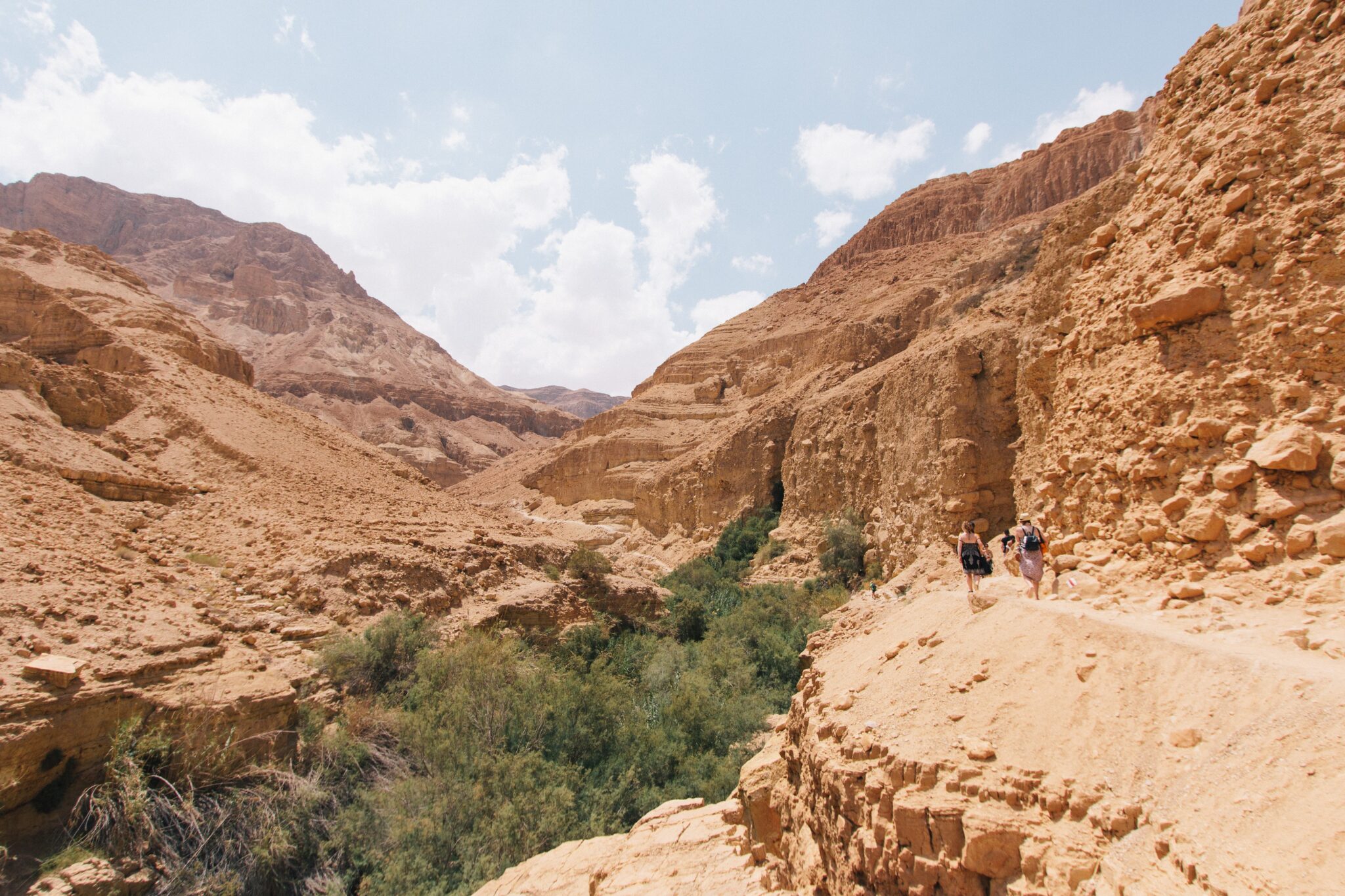Laura Straka is Campus Staff at Emory
About a month ago I was in Israel, hiking in the Ein Gedi Nature Reserve. Our desert hike was all rock, surrounded by caves in the rocky cliffs with ibex up above. The path took us to an oasis! We walked across cool streams with rushes, butterflies, and bugs buzzing – a strange sound in the empty desert. The greenery was a stark contrast to the hot, dry desert all around. We even walked with our feet in the water under a mass of rushes bent down into a shady tunnel. After about a mile, we came to David’s waterfall.
This is believed to be the very place from 1 Samuel 24:1, “‘Behold, David is in the wilderness of Engedi.’ Then Saul took three thousand chosen men out of all Israel and went to seek David and his men in front of the Wildgoats’ Rocks.” Saul had been seeking to have David killed ever since 1 Samuel 18, and David was still on the run. Because there is very little water in the desert, Saul knew David would have been hiding nearby.
In Chapter 24, Saul went into a cave to go to the bathroom – the same cave where David and his men were hiding! David had the opportunity to bring vengeance upon his enemy, to kill or humiliate him. But David stayed his hand! In v12, David speaks to Saul after he has left the cave, holding up the piece of Saul’s robe to prove his blamelessness. “May the LORD judge between me and you, may the LORD avenge me against you, but my hand shall not be against you.” David trusted that the LORD would judge Saul. His heart was not consumed with bitterness or rage. He did not act in anger.
How is it that David had the heart to honor the man seeking to kill him? How had his heart remained soft after being on the run for so long? What must his prayers have looked like while he lived in the wilderness, such an uninhabitable and dangerous place? It is stunning!
Psalm 63:1 is said to have been written while David was in the wilderness of Judah. As we hiked in the heat even at 8am, (the park closes at noon because the temperatures are so extreme), David’s words took on new meaning, “O God, you are my God; earnestly I seek you; my soul thirsts for you; my flesh faints for you, as in a dry and weary land where there is no water.” When David could have been longing for vengeance, he was longing for the Lord’s presence.
I marvel over the contrasts of the desert and the oasis. Fear for his life, the dangers of the wilderness, and the life-draining anger of unforgiveness were real threats to David. And yet, here at the waterfall, David knew the life-giving power of forgiveness because he knew God’s mercy for his own sin.
Being a Christian means that we take seriously Jesus’ command in Matthew 5:43—44. “You have heard that it was said, You shall love your neighbor and hate your enemy. But I say to you, Love your enemies and pray for those who persecute you, so that you may be sons of your Father who is in heaven.” The only way we can obey Jesus’ words is if we know how much we need forgiveness before God Our Judge. Do you know your capacity for bitterness and anger, resentment and superiority? Our Heavenly Father knows the whole story about us, and he has forgiven us. God loved his enemies and gave his life so that we would be redeemed (Rom 5:10).
This humbles us. It melts our hearts because we have been forgiven much. Those who have been forgiven much, love much (Luke 7:47). When you walk in daily awareness of your debt against God that has been forgiven, you will be empowered by the Holy Spirit to love your enemies. Corrie ten Boom says, “Forgiveness is the key that unlocks the door of resentment and the handcuffs of hatred. It is a power that breaks the chains of bitterness and the shackles of selfishness.” This is what David knew as he related to Saul. This is what we may know, too.
How do you need your heart to be changed, to be freed from the strangle of unforgiveness?
Who in your life is God calling you to love?
